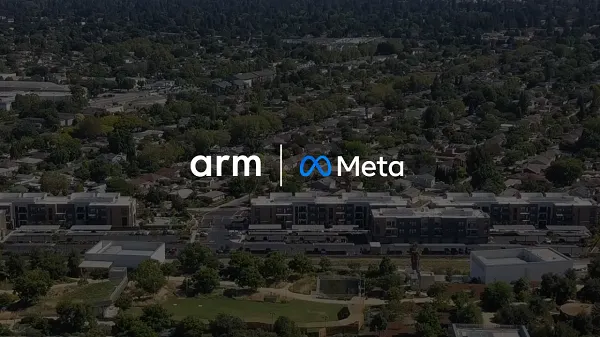
Meta Announces Data Processing Partnership To Power AI Recommendations
This audio is auto-generated. Please let us know if you have feedback.
This is interesting, within the broader context of Meta’s ongoing and massive investment into AI data center projects.
Today, hardware provider Arm has announced a new partnership with Meta, which will see Meta work with Arm to establish expanded systems to help power recommendations across its apps.
As explained by Arm:
“Arm and Meta have announced a strategic partnership to scale AI efficiency across every layer of compute – spanning AI software and data center infrastructure – to enable richer user experiences to billions of people worldwide. From milliwatt-scale devices powering on-device intelligence to megawatt-scale systems training the world’s most advanced AI models, the collaboration will enable AI across multiple types of compute, workload, and experiences that power Meta’s global platforms.”
So rather than relying on just its own infrastructure and evolving tech, which also includes the development of its own AI chips, Meta’s partnering with Arm to power its recommendation engine, specifically, with Arm’s various elements.
“Meta’s AI ranking and recommendation systems – which power discovery and personalization across Meta’s family of apps, including Facebook and Instagram – will leverage Arm’s Neoverse-based data center platforms to deliver higher performance and lower power consumption compared to x86 systems.”
It’s interesting to see Meta outsourcing this critical element of its systems to a third-party provider, though there’s nothing to suggest that Arm will have direct input into these elements, and/or how Meta’s ranking systems work.
The partnership is based on infrastructure, and empowering Meta to optimize its systems. But even so, given the critical nature of these elements, it seems like something that Meta would want to keep in-house as much as possible.
I mean, Meta is also investing hundreds of billions into AI infrastructure, and building for the future of “superintelligence.” So it does have a lot of processes to compute, alongside the daily activities of its billions of users, and as such, it’s not like Meta can’t use the help. But again, given that this does specifically refer to AI ranking and recommendation systems, it seems worthy of note in regards to the evolution of Meta’s systems.
Does that mean that Meta’s AI ranking will now be dependent on a third-party? Does it mean that Meta’s ranking systems will improve under this new process?
Arm does also note that the partnership will produce “measurable gains in inference efficiency and throughput,” with insights on such to be shared with the open source community.
So it could end up providing more insight into how Meta’s ranking systems work, at least in some capacity, and it’ll be interesting to see how this helps Meta evolve and upgrade its rankings to improve the relevance of the user experience.
Either way, it’s another indicator of Meta’s ever-sprawling tech empire, and the various ways that it’s looking to expand its AI capacity however it can.











